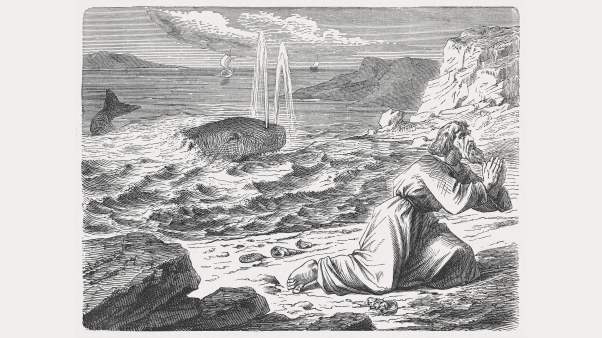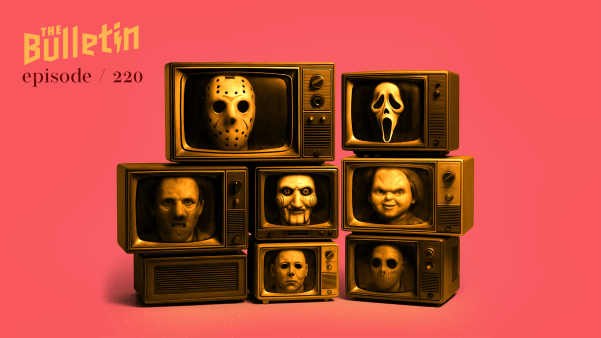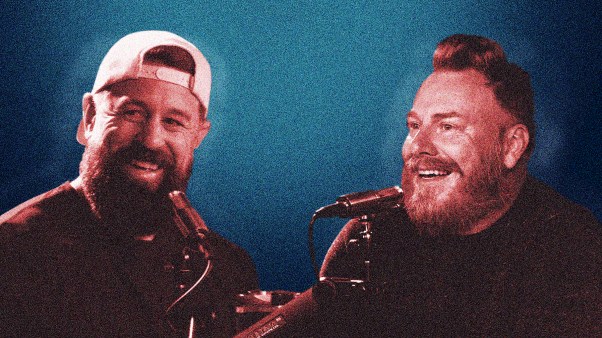
The debate over food stamps continues in Congress this month, and the arguments are as red and blue as we would expect. Republicans, rallying for smaller government, argue for a reduction in the Supplemental Nutritional Assistance Program, which would make 2 million fewer people eligible for the program. Democrats, supportive of government spending, favor the protection of SNAP.
And both sides are quoting the Bible, one saying, "The one who is unwilling to work shall not eat" (2 Thess. 3:10) and the other, "Whatever you did for one of the least of these… you did for me" (Matt. 24:40).
I am a Christian without strong red or blue loyalties, but I do think rising food insecurity—defined by the USDA as lack of "consistent access throughout the year to adequate food"—should concern every one of us. As research continues to reveal the widening gap between rich and poor, many poor Americans struggle to overcome the systemic inequities that restrict their access to the resources necessary for their rescue.
Regrettably, I have only begun caring about the protection of SNAP since my teenage nephew came to live with us this year and began sharing with us his painful childhood stories of food insecurity. I confess to usually affording the insularity wealth buys, my life comfortably sheltered from the struggles of the poor. I am one of the rich getting richer, and borrowing Ron Sider's phrase, I don't often know how to live as a "rich Christian in an age of hunger." And yet I want to learn. I want to grow in generosity and compassion. I want to "do good, be rich in good works, be generous and ready to share," (1 Tim. 6:18).
My nephew, now 18, grew up hungry. Unlike my own children, who, by no merit of their own, landed into an upper middle-class family with two well-educated parents, my nephew (whose father died when he was young) was raised by a single mother who cobbled together an existence from minimum-wage jobs—and welfare. For a while, the live-in boyfriend delivered pizzas and brought in a little extra cash, but it was never enough to feed the little boy whose childhood passed in the quiet anxiety between government checks, as he looked forward to calling the toll-free number on the back of his mother's EBT card to see whether the monthly allotment of 0 been added.
Despite our stereotypes of lazy welfare queens (and some will argue that my nephew's mother, before her death, had been one), 4 of every 5 SNAP enrollees are either working or can't work because they lack access to childcare, suffer from a disability, or are elderly. Like my nephew, they are even children themselves. People who criticize or outright dismiss the food stamp program all have stories of the tattooed bum paying for his groceries with WIC checks (a caricature crassly painted by Daniel Flynn in his piece for The American Spectator)—or alternatively, the young mother giving birth to more WIC checks (excuse me, babies). But these people do not fairly represent the Americans who may have more legitimate reason for relying on food stamps. Perhaps we could even say that the majority of SNAP recipients are the widow, the orphan, and the alien—people whom God rises to defend (Ps. 68:5).
It's in this vein that I favor protection of SNAP, not because I cede what is arguably the Church's responsibility to the State, but because I believe God has instituted the government as a servant for our good (Rom. 13:4). Until the Church can succeed in stretching its hands across demographic divides—rich and poor, black and white, urban and suburban and rural—for the necessary sharing of its resources, it cannot adequately resolve the inequities into which people are born. This necessitates some level of government intervention, including providing food for the hungry. This is why evangelical Christians—Republican and Democrat—should link arms with the U.S. Conference of Catholic Bishops, Evangelical Lutheran Church in America, Jewish Federations of North America, and many other religious organizations to lobby for the protection of the food stamp program.
Undoubtedly, SNAP is an imperfect program, and some recipients abuse their benefits by exchanging them for cash. As The Weekly Standard reported in August, illegal trafficking is on the rise. However, trafficking rates have significantly declined since the '90s, and the abuse of benefits does not actually cost the government more money, but instead, diverts the benefits from their intended purpose, reports the USDA. Let's be clear: if we're debating deficit reduction, it cannot be achieved by correcting the abuse of food stamps. Saving the government money will only be served by enrolling fewer Americans—a hard cut to make when more need the program.
The solutions we propose for reducing poverty will always provoke an important question: How do we help the poor without creating systems of dependence that inevitably entrap them? Welfare—and work—are both legitimate answers in their own right. As the Church, we will continue to wrestle with how best to live into our calling to "seek justice; correct oppression; bring justice to the fatherless, plead the widow's cause," (Isaiah 1:17), but I suggest we might begin, in this time of economic insecurity and rising inequity, by defending the food stamp program, which, for many millions of Americans, is an answer to the prayer our Lord taught us to pray:
Give us this day our daily bread.
(Updated 10/11; see below)
On September 16, three weeks ago today, Donald Miller wrote on his blog that the Blue Like Jazz movie, which he and filmmaker Steve Taylor had been trying to make for several years, was essentially dead. “The book that swept the country will not sweep theaters,” Miller blogged that day. The main culprit was a lack of funding, especially after a key investor had decided to back out of the project.
Less than two weeks later, the film received a breath of fresh air – and possibly new life – when two young men from Franklin, Tenn., launched SaveBlueLikeJazz.com, a grassroots effort to raise $125,000 by October 25 to keep the film on track. The money was being raised through Kickstarter.com, an online fundraising site.
They had 30 days to raise the money; they did it in ten. Miller announced the news on his blog today with a post titled, “YOU DID IT!”, writing, “I’ll blog more about all of this soon, but for now, raise your glasses friends, because WE ARE MAKING A MOVIE!”
Taylor recently told CT that once the money is raised, shooting would begin within a few weeks, mostly in Tennessee (where Taylor lives) to save significantly on costs. Originally, the entire film was to be shot in Portland, where Miller lives and where much of the story is based. Now, only portions of it will be shot in Portland.
In a later e-mail to CT, Miller said, “It’s become a bigger and better story, and a story I think God stepped into the middle of. Some thoughts:
“We had so much trouble raising the money for the film that I wondered whether God wanted us to make it. . . . This is a very honest movie, a very raw movie, but it’s a movie that presents faith as it intersects with a fallen humanity. So I think God answered my doubt in a way only God could. That’s been the most amazing part for me.
“We all get to tell this story together now. It’s our story. It’s not a story for the church to consume, it’s a story for the church to tell.
“The gospel is about rescue, and in a very real way, we got rescued on this. Our brothers and sisters swooped in to help us out.
“Another feeling I didn’t expect . . . is fear. We’ve got to make an amazing movie now! We’ve been pushing so hard to get the finances, and now we’ve turned a corner and are making it, and that let loose a lot of fear. Fear is a good thing, for sure, but it has to be overcome. The only way to overcome this fear is to make a heck of a movie. So here we go.”
10/11 UPDATE: Jonathan Frazier and Zach Prichard, who launched the SaveBlueLikeJazz website, report that contributions came from almost 1900 backers, with donations ranging from $1 to $5,000, and that most donations were between $50 and $100 – “which is great,” they note, “because it proves that this was truly a groundswell of smaller donations that made the difference.”
Director Steve Taylor weighs in on the good news: “I’ve been overwhelmed with joy and gratitude. We reached the end, then God provided a very unexpected turn via a couple of very dedicated fans of the project. It hit me at the end of the third day of the campaign, ‘Hey – we’re making a movie. Time to stop saying “if” and start planning “when.”‘ Not since the Apostle Thomas has anyone been so happy to be proven wrong.” Taylor said that shooting would start in late October and run through November.
Here’s an updated video from the team behind SaveBlueLikeJazz, including thank you’s from Taylor and Miller:








